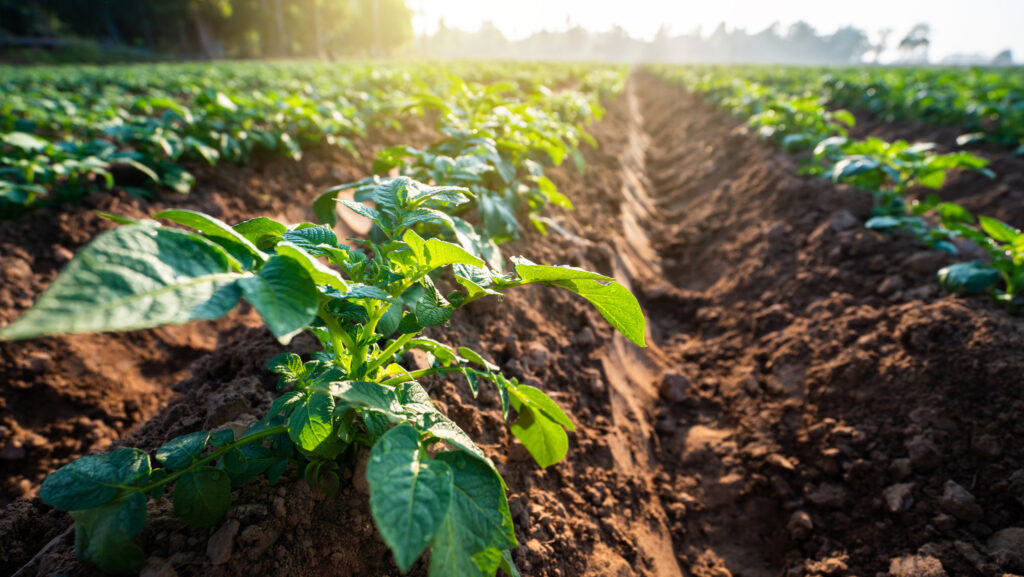Opinion: Organic farming – the key to longer-term food security
 © Natara/Adobe Stock
© Natara/Adobe Stock In 2022, the global organic farming area increased by more than 20m ha, to a total of 96m ha.
These figures reveal a widespread recognition that organic represents a multi-faceted approach to balancing food production with protecting and enhancing the natural environment.
Organic Farmers & Growers fully supports the sentiment of “No Farmers. No Food”, but we need to remember that a fundamentally compromised and depleted environment also means no food.
See also: Food security threatened by ELM scheme, scientists warn
About the author

Roger Kerr is the chief executive of Organic Farmers & Growers.
Here he argues for a shift towards more sustainable ways of farming.
I appreciate that debates about different farming approaches can frequently become polarised, and I would champion organic every step of the way.
But ensuring we have a properly considered land use policy, twinned with a robust trade policy and a fair and transparent supply chain, would mean farmers are able to produce the necessary food while protecting our environment and addressing climate change.
The goal must be to reduce our dependence on intensive, input-reliant monocultures and embrace carbon sinking farm enterprises that create safe spaces for nature.
Land sparing
Some claim that land sparing (where nature and food production are mutually exclusive) is a better approach.
However, suggesting that optimising food production on as small a land area as possible is the most sustainable way to feed a growing population does not stand up to scrutiny.
Intensive systems degrade our soils, our environment and ultimately our resilience, so promoting land sparing as a way to secure our long-term food requirements to the exclusion of all other approaches is, frankly, short-sighted.
After all, food is the biggest economic contributor to breaching planetary boundaries – a fact highlighted by a report produced by the Food System Economics Commission which highlights current food systems risk a 2.7C temperature increase by 2100.
In contrast, a wholesale shift to sustainable agricultural production could create a whopping £8tn of benefits a year in terms of improving human and environmental health.
There has been an underlying process of automation, consolidation and specialisation in the agriculture sector which is seemingly inevitable in a market economy.
Largely unable to influence pricing, many farmers have rationalised their production to remain economically viable by cutting costs or increasing yields, frequently both.
Even with farm support, all we’ve seen is lower consumer prices, higher land prices and higher rents, rather than improved farm profitability.
‘Reckless disparity’
In parallel to this development, government has sought to strengthen environmental legislation, which is laudable, but fails to address the underlying tension between the continued need to “run harder and faster” within a free market, while also taking care of the environment.
Continuing to ignore this huge disparity in our food and farming systems is reckless. Resolving this complex issue requires an equally colossal shake-up.
History shows us that single fixes fail to resolve complex problems. Therefore, a shift towards sufficiency, permanence, and equitable food distribution is crucial for true food security.
To simply aim for higher yields as a measure of productivity through ongoing intensification is economically and environmentally unviable in the long term.
Most scientists agree we need to address climate change and restore biodiversity.
There is therefore little doubt that we will have to shift our patterns of production and consumption to achieve food security to one that is environmentally, nutritionally, and economically sustainable.
We are all facing an existential threat and regardless of how concerned you are, you are surely not concerned enough.
We cannot foresee how these challenges will be resolved, but I believe realistic solutions will come in an evolutionary way, through diversity, trial and error and compromises.
Homogeneous approaches, however well-intentioned, are bound to fail on many accounts. Now is not the time for myopia or dogma.
